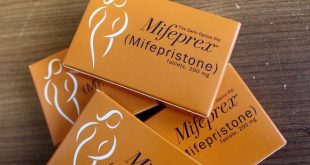 Jennifer Gratz, plaintiff in Gratz v. Bollinger, accused the University of Michigan of rejecting her application because she’s white. The case made it to the U.S. Supreme Court. The school used a points-for-race scheme in undergraduate admissions, and the court ruled that it violated the Equal Protection Clause.
Jennifer Gratz, plaintiff in Gratz v. Bollinger, accused the University of Michigan of rejecting her application because she’s white. The case made it to the U.S. Supreme Court. The school used a points-for-race scheme in undergraduate admissions, and the court ruled that it violated the Equal Protection Clause.
Gratz continued the battle against racial preferences with the Michigan Civil Rights Initiative, a measure that barred the government from granting preferences to or discriminating against individuals or groups based on race or sex in employment, education, and contracting. In 2006, the initiative passed with 58 percent of the vote.
Naturally, opponents sought to nullify the law. In 2011, the Sixth Circuit overturned it. In May of this year, the Supreme Court upheld Michigan’s ban by a 6-2 vote. Michigan voters had the right to change their state constitution to ban racial discrimination in taxpayer-supported colleges and universities. A race-neutral government is an objectively good thing, but if you go by liberals, you’d think the return of chattel slavery was imminent.
Late last year, Gratz spoke at an event hosted by the Young Americans for Liberty (YAL), a student group at the University of Michigan. Afterward, the group submitted an application for $1,000 in funding, standard practice for student groups. The school denied the request, claiming it doesn’t fund political events. The school does have such a policy, but it funded school events for the NAACP and others. The Alliance Defending Freedom represented YAL. Michigan apparently realized it had no basis to deny the funding and settled with YAL for $14,000.
“Too few students have the courage to stand up for diversity of opinion and thought when bullied, intimidated, and silenced by zealous university officials intent on imposing their views,” Gratz wrote in a press release. “The YAL students at the University of Michigan refused to accept discrimination and stood up for their right to equal treatment.”
 CURE News and Clergy Blog News and Commentary for Christians
CURE News and Clergy Blog News and Commentary for Christians



